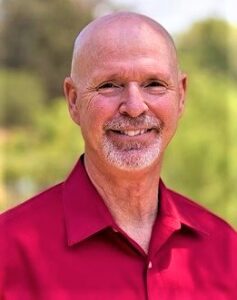People living with chronic pain often receive negative messages from their healthcare providers. They have been told “it’s all in your head,” “you need to try harder,” or maybe “you’re making yourself hurt so you can get drugs.” Another phrase I have heard from doctors and nurses, as well as mental health and substance abuse counselors, is “they’re just drug/med seeking.” Before I worked extensively with this group of people, I used to think my clients were “drug seeking” as well. However, I have learned that what they really are looking for is relief from their pain—both physical and emotional.
These negative messages, combined with feelings of hopelessness and helplessness, can cause someone suffering with chronic pain to become confused, guarded, and defensive. Teaching them how to effectively connect with supportive people is an important part of every recovery program that strengthens the probability of relapse prevention. This positive support often leads to overcoming confusion and defensiveness. Unfortunately, mistaken beliefs about chronic pain and chemical dependency in the healthcare system and the recovery community can discourage recovering people from connecting with appropriate support. In fact, misguided advice has often led to life threatening situations for the person in pain.
I have seen patients with chronic pain and coexisting addiction problems receive completely inappropriate treatment from their healthcare providers. These situations are very frustrating because they are so unnecessary. I get very concerned because inappropriate treatment can easily lead to relapse, and in some cases death.
The blame the victim mentality is not limited to treatment providers. I have also seen Twelve-Step members who shame, blame, and shun others who relapse. This is particularly true if the person had long-term sobriety before the relapse. I have heard newcomers being told to avoid such people because they are “losers.” When a chemically dependent person returns to alcohol or other drug use, they need compassion, understanding, and support—not shame and blame, in order to once again experience quality recovery.
To learn about two skill trainings coming up in Sacramento California designed to teach treatment strategies for people living with chronic pain and coexisting disorders including disorders including addiction please Click Here.
To learn more about effective chronic pain management check out my article The Right to Quality Chronic Pain Management that you can download for free on our Ariticles page.
You can learn more about the Addiction-Free Pain Management® System at our website www.addiction-free.com. If you are working with people in chronic pain or living with chronic pain yourself and want to learn how to develop a plan for managing the pain and coexisting psychological disorders including PTSD or addiction effectively please go to our Publications page and check out my book the Managing Pain and Coexisting Disorders: Using the Addiction-Free Pain Management® System. To purchase this book please Click Here.
To listen to a radio interview I did conducted by Mary Woods for her program One Hour at a Time please Click Here to go to this interview.
To read the latest issue of Chronic Pain Solutions Newsletter please Click here. If you want to sign up for the newsletter, please Click here and input your name and email address. You will then recieve an autoresponse email that you need to reply to in order to finalize enrollment.


